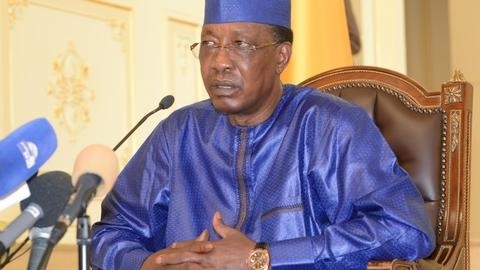Understanding Nigeria’s democracy, dictatorship and spirit of nationalism in Chad
Nevertheless, in Nigeria, Buhari is the president and commander-in-chief of the armed forces. He had to go through a rigorous democratic political party’s process before he would emerge victorious in pre-primary

Khalid Yusuf Tebo
The operation of political parties in democracy is systematic, flexible and elastic when compared with political parties outside democracy.
However, political parties in democratic states are distinctive with those in non-democratic states, especially by their mode of operations. Sometimes, they share partial similarities and roles. Yet, the roles of those in democracy are not distinguishable from advocating transparency, accountability, integrity and quality of choosing representatives in favour of national interest.
- Calls for action mount as cruelty on children, adults persists
- 40 visually impaired pupils in Edo to undergo surgery
Nevertheless, in Nigeria, Buhari is the president and commander-in-chief of the armed forces. He had to go through a rigorous democratic political party’s process before he would emerge victorious in pre-primary, primary and post primary elections. As a member of a political party, he is like any other member and possesses no legal proceedings to influence the serving governor, serving senator and member house of reps under the impression of the same political party in democracy as far as good governance is the matter of the day. This has to do with a party’s political exercise in ruling over the affairs of its members when the need arises.
Contrastingly, Buhari’s participation in decision making is minimal compared to the late Déby of Chad because of their political system differences and leadership modus operandi. Buhari is less sensitive in governance, less powerful over some national affairs and less effective legislatively. Not like Déby who was more sensitive, very powerful and strong because of his non-democratic identity and political ideology.
Moreover, the edge of governance in Chad is said to have self-centered features without collective effort made by the people who are being ruled. In fact, the system accommodates a larger portion of corruption and manipulation of single interest, meanwhile silencing the voices of its members during political discourse, public opinions and decision making.
For the sake of democracy and a sense of nationalism in Nigeria, no one can or will personally decide to do anything between executive, legislature and judiciary no matter how patriotic someone is. One must act according to the constitutional guidelines as well as passing his ideas to the three tiers of government for critique, suggestions and support. For instance, If Buhari is eager to die in the battlefield; he must first identify the legality of sacrificing his life constitutionally as a president of Nigeria who wants to fight Boko Haram in favour of national interest. He must understand his eligibility politically and democratically before he pays the price.
Anyway, Nigeria is not like Chad; here, we operate democracy not militarism and dictatorship. In Chad, Déby adopted a political party in a unitary system of government that is linked to dictatorship. By the way, the system he enjoyed deliberately lacked “check and balance” if compared with the bicameral legislature.
If you may recall, the Déby’s political party is “Patriotic Salvation Movement”; the party is built on a spirit of nationalism and the aim is to produce patriotic mindsets with sophisticated ideology and spiritual high sense of nationalism. Astonishingly! Déby remained one; and he answered the clarion call of his party, MPS. A true nationalist indeed!
Khalid Yusuf Tebo writes from Yobe.
